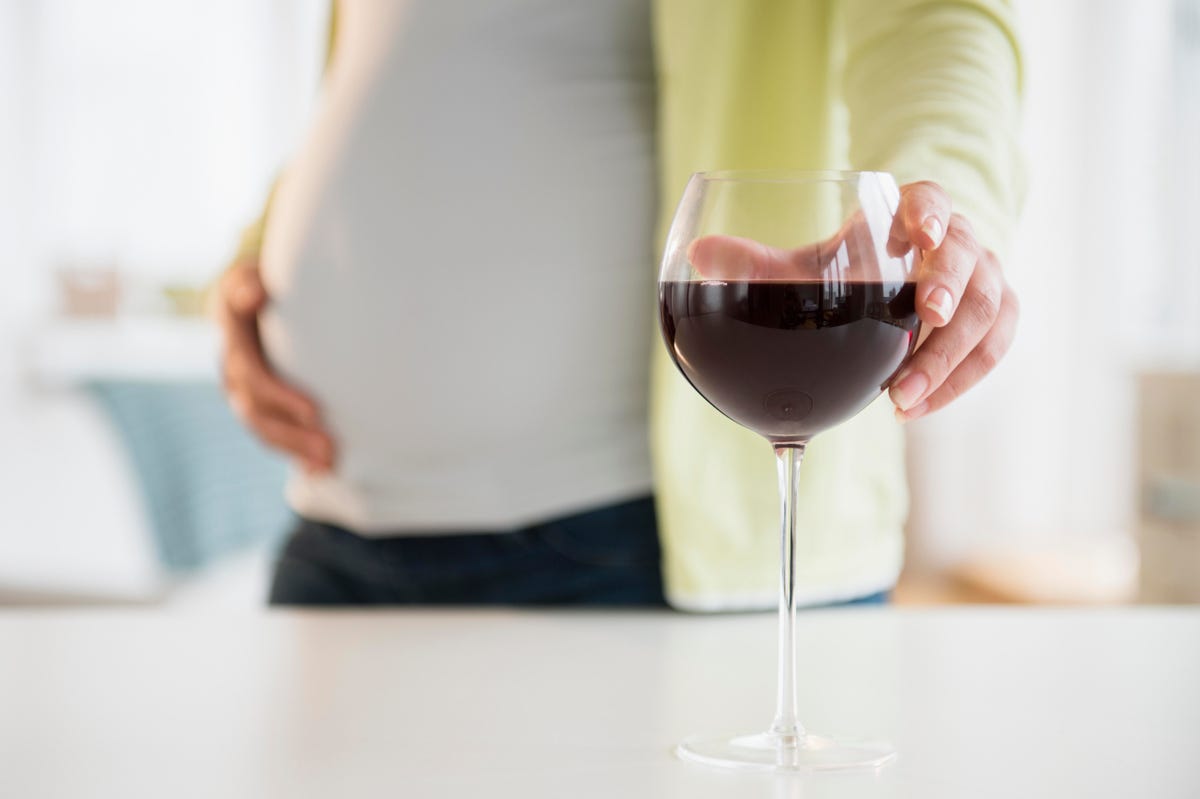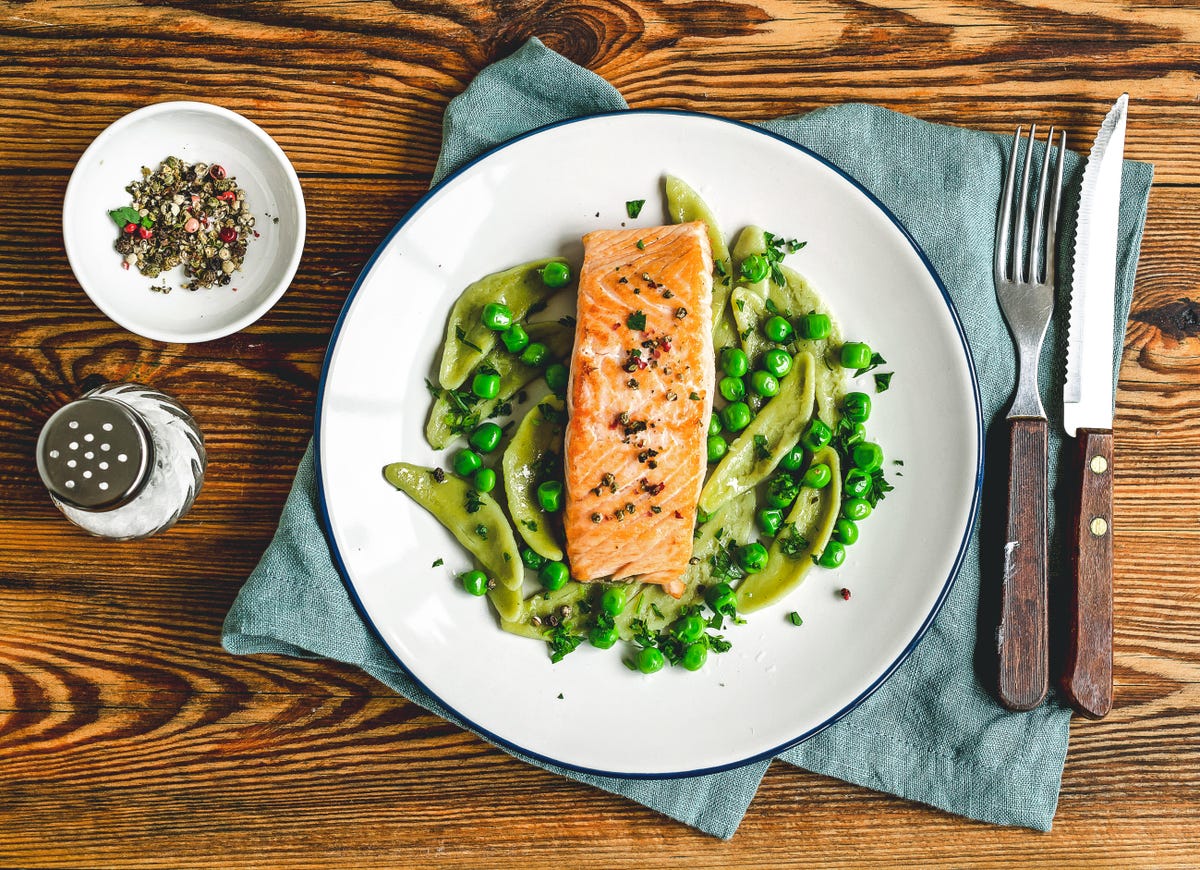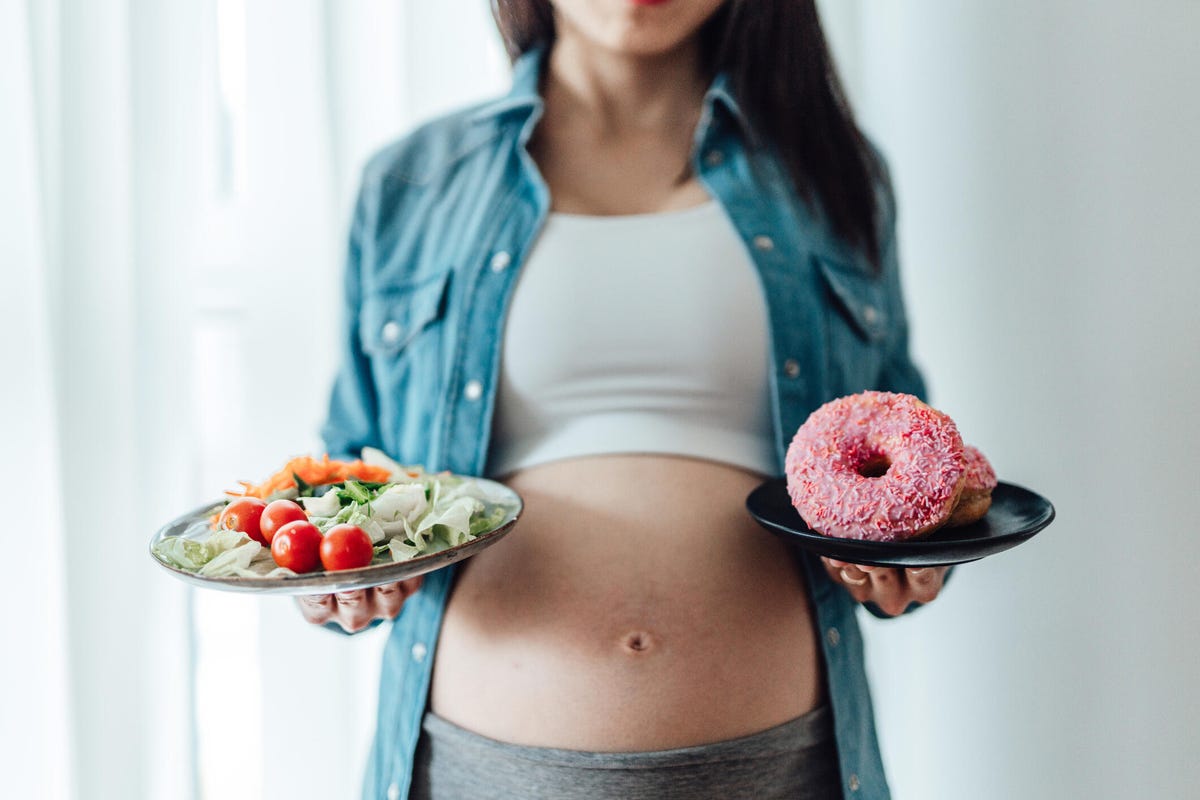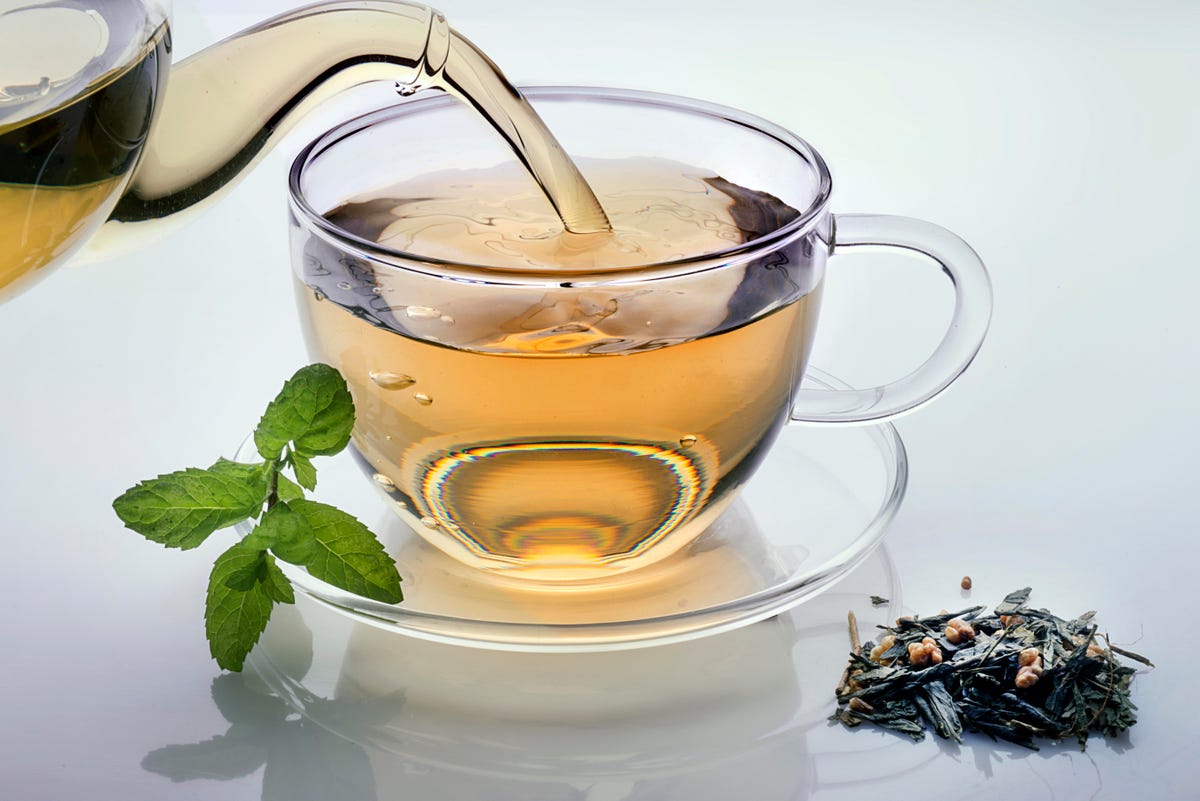Pregnancy what to expect pregnancy what do contractions feel like pregnancy what to take to the hospital pregnancy what not to eat pregnancy what expect post pregnancy nutrition what your body pregnancy nutritional needs pregnancy nutritionist pregnancy nutrition tracker pregnancy nutrition surveillance system

Pregnancy Nutrition: What Foods to Avoid When Pregnant
Pregnancy gives a whole new meaning to food. Not only does what you eat help nourish and grow a human being, but it can also send you running for the bathroom as you discover yet another smell that disgusts you. There's already so much to consider when pregnant that it can hard to remember exactly which foods or beverages you absolutely can't ingest and which are safe in moderation.
To help you through this exciting yet admittedly stressful time, we rounded up a list of foods and beverages to avoid so you can continue to figure out how best to fill your plate during this important time in your life. We also rounded up a list of foods that experts continue to debate if they are safe to eat during pregnancy.
Read also: 6 Things Your OB-GYN Wishes You Knew About Pregnancy
Foods to avoid during pregnancy
Alcohol
It's not a food, but alcohol continues to sit high on the list experts say to avoid while pregnant. Alcohol can affect fetal development of the brain, facial features and other important body parts as it passes through the pregnant person's blood to the developing fetus. Alcohol can impact a child's life after they're born and cause physical and developmental disabilities, or what's known as fetal alcohol spectrum disorders.
According to the Centers for Disease Control and Prevention, there's no safe amount of alcohol to consume at any point during pregnancy. If you're pregnant or planning a pregnancy and would like help quitting drinking, talk to your doctor or find help near you.

Experts say to cut out beer, wine and liquor during pregnancy because there's no known "safe" amount of alcohol to drink.
Jamie Grill/Getty ImagesRaw or undercooked seafood and all shellfish
This one might hurt a little, but raw or undercooked fish (like sushi) can contain bacteria and viruses that can be harmful to you and your baby. Importantly, eating raw fish runs you the risk of listeria, which is an infection 10 times more likely to affect pregnant people, and 24 times more likely to affect Hispanic pregnant people, according to the CDC. Listeria can cause miscarriage, stillbirths, preterm births and death in newborns.
Some examples of seafood to avoid include sushi, sashimi, ceviche, raw oysters, scallops and clams, per the Mayo Clinic. You should also stay away from refrigerated seafood labeled nova style, lox, kippered, smoked or jerky, according to the clinic.
High-mercury fish
The bigger and older the fish, according to the Mayo Clinic, the more likely it is to contain levels of mercury that aren't safe during pregnancy. A buildup of mercury in your body can affect your baby's nervous system. Common fish to avoid include bigeye tuna, king mackerel, marlin, orange roughy, swordfish, shark and tilefish, per the Food and Drug Administration.
If you catch your own fish, or eat locally sourced fish, check local advisories for mercury levels and possible pollution.
Raw and undercooked meat
Pregnant people are at a higher risk for foodborne illness because pregnancy affects their immune system's ability to fight off those infections, according to the FDA. Meat served raw or undercooked can carry harmful bacteria such as listeria, E. coli, salmonella, toxoplasma and make you and your unborn baby (who doesn't have a functioning immune system yet) severely ill.
So while you're pregnant, it's best to order that burger or steak well-done.

There's a long list of fish to avoid while expecting, but well-done salmon or other low-mercury fish are healthy options for you and your pregnancy.
Aniko Hobel/Getty ImagesProcessed meat
Hot dogs, cold cuts and deli meat are all examples of things you might want to avoid eating while pregnant. These "ready to eat" meats can also contain harmful bacteria or viruses. The FDA does say it's OK to eat these types of meat, though, if they're "reheated to steaming hot." Piping hot bologna, anyone?
Raw eggs
Undercooked or raw eggs pose the same foodborne illness threat to pregnant people, so it's best to avoid them. Some popular homemade food items that might contain raw eggs include hollandaise sauce, Caesar dressing, aioli dip and mayonnaise (but store-bought dressings and dips are typically safe because they're made with pasteurized eggs, according to the FDA). It's also important to cook your eggs thoroughly. That means firm scrambled eggs and hard yolks.
Unwashed fruits and vegetables
You can blame listeria and the other common foodborne illnesses again, but the FDA recommends pregnant people wash their fruits and veggies in the case they've been contaminated. You should use plain water, scrub away the dirt with a vegetable brush (if you have one) and remove bruises or cuts that can harbor bacteria, per the FDA.
Unpasteurized milk and cheese
If your cheese or milk product has "unpasteurized" on the label, it's best to skip because the potential infection with Listeria could lead to miscarriage, preterm delivery or affect a newborn. Goat cheese, feta, Brie, blue cheese, Camembert and queso fresco or blanco typically contain unpasteurized milk and are best to avoid, Parents reported.
Hispanic people who are pregnant might be much more susceptible to listeriosis because their diets are more likely to include soft cheeses like queso fresco or blanco, panela and asadero. If queso blanco and queso fresco are made with pasteurized milk, it's safe to eat. (As a note of caution, the CDC says that some cases of listeriosis have been linked to contamination in products that were made with pasteurized milk.)

It's best to eat small amounts of highly processed foods during pregnancy because they usually offer little nutritional value.
Oscar Wong/Getty ImagesRaw sprouts
Sprouts, though delicious and healthy, can be contaminated with salmonella -- a bacteria which causes about 1.35 million infections a year in the US, according to the CDC. While pregnant, it might be best to pass on the sprouts.
Organ meat
Organ meats, especially liver, contain very high amounts of vitamin A which is harmful during pregnancy, sometimes leading to birth defects or miscarriage. Types of synthetic vitamin A like retinol and the acne medication isotretinoin (formerly called Accutane) should also be avoided during pregnancy for this reason.
'Proceed with caution' foods
Sugar substitutes
Expert advice for pregnant people on artificial sweeteners and "fake sugar" seems to be a mixed bag. Doctors advise that pregnant people avoid saccharin, the sugar substitute found in Sweet'N Low, because it can cross the placenta and stay in fetal tissue. Others cite a possible link to low-calorie sweeteners and high birth weights or child obesity. But other guidance, like that from the Mayo Clinic, is that artificial sweeteners are fine if consumed in small amounts or in moderation.
Bottom line: a diet soda here and there likely won't be harmful to you and your baby. But if you think your diet is too sugary, talk to your doctor before replacing the real stuff with artificial or low-calorie sweeteners.
Caffeine
If you're one of the many people who need a cup of joe to start the day, you might be wondering if you need to quit the habit. Current guidance is that, while cutting out caffeine entirely is ideal, moderate consumption of less than 200mg a day doesn't cause miscarriage or preterm birth, according to the American College of Obstetricians and Gynecologists. (A typical 8-ounce cup of coffee has about 96 mg of caffeine, for scale, but amounts vary based on the brew).
In addition to coffee, caffeine can be found in soda, chocolate, tea, energy drinks and other food and beverages. If you're particularly sensitive to caffeine, it might be best to keep your caffeine intake under 100mg, Healthline reported.
Caffeine, like a lot of substances that you can metabolize efficiently, crosses the placental barrier, so it's best to keep intake low for your growing baby. A study found that consuming 200 mg or more of caffeine a day increases the risk of miscarriage, but other research suggests even moderate caffeine consumption has been linked to low birth weight. If you have a history of miscarriage or are concerned about your caffeine intake, talk with your doctor.

Limit caffeine intake during pregnancy and be careful with sugar substitutes.
Tetra Images/Getty ImagesHerbal tea
Caffeine is found in some teas, but herbal tea in pregnancy is a whole separate issue. The Mayo Clinic says to avoid drinking herbal tea while pregnant, unless your health care provider says it's OK, because of limited data on the safety for you and your baby.
Herbal teas have been used by midwives and other people as cures for morning sickness and other pregnancy symptoms, but there's still a lot we don't know about the amount of herbs that are safe for pregnant people. Some herbal teas that might be safe to drink in the first trimester are ginger tea and green tea (which contains caffeine) according to Australia's Department of Health. You might add red raspberry leaf tea to the list in the second trimester (the tea is associated with uterine contractions, so the agency suggests you wait out the first three months). Be careful not to drink too much as drinking three or more cups a day has been linked to an increased chance for spina bifida.
Some herbal teas to absolutely avoid during pregnancy include sage and parsley tea, which have both been linked to miscarriage, according to the Australian agency.
Bottom line: Ask your doctor before you drink, or continue drinking, herbal tea while pregnant. And that includes tea marketed as "pregnancy" tea.
Fish
Fish are an excellent source of protein and many have other awesome nutrients, including omega-3 fatty acids and, despite the long list of fish you can't eat, there are a few you can include as part of a balanced diet. The FDA recommends eating 8 to 12 ounces (about two or three servings) a week of safe-to-eat fish. Some of these fish to consider, per the Mayo Clinic, include: anchovies, catfish, cod, herring, light canned tuna, pacific oysters, pollock, salmon, sardines, shad, shrimp, tilapia and trout. White tuna is also OK, but stick to 6 ounces a week instead.

There are a lot of unknowns about tea, especially herbal tea, during pregnancy. Check in with your doctor if you're a tea drinker.
ATU Images/Getty ImagesThat's a long list
Like every person, every pregnancy has different needs and finding a diet that works best for one person may not be sustainable for you. While it's important to find foods that provide nutrients for you and your pregnancy, asking questions and considering your individual health can make eating healthy during pregnancy feel less restrictive. If you have questions about whether a food is safe to eat during pregnancy, contact your health care provider.
More from CNET Parenting
The information contained in this article is for educational and informational purposes only and is not intended as health or medical advice. Always consult a physician or other qualified health provider regarding any questions you may have about a medical condition or health objectives.
Source



